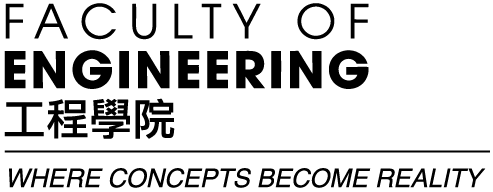The Road to Becoming a Quality Assurance Manager

Master of Science in Sports Technology and Management
Scholarships:
- Excellent Entrance Scholarship
- Outstanding Performance Scholarship
- Excellent Dissertation Scholarship
- Study Tour in Sports Scholarship

The art of patience and time-management
When faced with an abundance of problems to be solved, numerous deadlines to be met, and constant pressure from co-workers and clients, it can be quite difficult and frustrating. When asked about the attributes he thinks are pivotal to finding success in his field of work, Fan stated that time management, patience, and communication skills are three of the most important assets to have in his field of work. He describes the high workload of having to write on average almost one to two reports every day, and having to also deal with complaints on a 24-hour basis, while also having to do auditing work. Hence, he believes that it is essential for graduates who are looking to work in this field to possess the ability to take on multiple tasks at once, and have proper time management such that they will be able to deal with the overwhelming workload. Moreover, working in a multi-national corporation, Fan would often have to set up and attend calls, with colleagues from different countries and continents to discuss the products.
Furthermore, Fan stated that staying patient and calm with good communication skills is pivotal. This is due to the fact that a quality assurance worker would often have to deal with the sales representatives and the customers, who would often be quite distressed from the malfunction of a device. Hence, the quality staff would not only have to help them resolve the problem, but to also assure them that the issue is nothing major and can easily be resolved. As the quality assurance manager in Asia, Fan also has to constantly fly to factories located in different countries such as Indonesia in order to assess the quality control of the production line. Hence, he would often have to keep the conversations simple and clear to ensure that the translator will have no problem in translating the messages back and forth.
Problem solving
As discussed above, a large part of being a quality assurance worker requires problem solving. Fan stated that as a quality assurance worker, there were not many experienced quality assurance workers who could provide help and insight, and therefore he would often have to face the issues as a “one man band”. He found that this was a great challenge to his job as it was hard for him to seek help from other people. At times, even if he was able to obtain solutions from the manufacturing sites, it may not be suitable for his setting, and he would have to think of alternative solutions. He gives the example of a manufacturing site may not often give solutions that are tailored to Hong Kong. For example, the United States may have systems and policies in place to help people suffering from diabetes, where as Hong Kong may not, and thus the solution may be practical in the United States, but unsustainable in Hong Kong. Hence, he would often have to get creative and think of other alternative solutions that would work for the setting of Hong Kong or Asia.

Credit by Orion KEUNG (Year 2 -Bachelor of Science (Honours) in Biomedical Engineering)
A job of high nobility
When working with medical devices, the quality of it directly links to a patient’s health and safety. In the unfortunate instance where the device malfunctions, it could potentially cost the lives of people. Hence, as a quality assurance manager, Fan has to ensure that he is able to respond and resolve any product complaints as fast as he can. However, it is often quite normal for people to not always be productive, and not always feel motivated, especially when encountering difficulties in their work. Fan stated that a motivation for him when tackling a hard problem is to think “if this instance happened to a close relative of mine, for example, my mother, what would I do?”. In turn, this helps him be motivated to help and handle complaints in the best way that he can. When faced with an issue that he does not know how to answer, he stated that he cannot hide the issues behind medical devices, as the issue could potentially harm many. Hence, he identifies the need to be truthful and honest about not being able to resolve the issue.
Applying skills learnt from University
When taking the first step into the working world, it is the first opportunity for graduates to express what they learnt during school and university. Fan recalls his knowledge learnt in university such as from the electrophysiology lab, biomedical instrumentation lessons to attain the basic theory and knowledge of medical devices, which has helped him immensely in his career. Fan also identifies the benefits he gained from the course by learning medical technology management and regulation, which was very useful for his career as he believed that this knowledge was able to help him be unique as a BME graduate.




